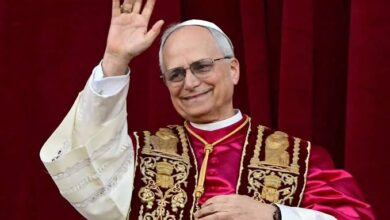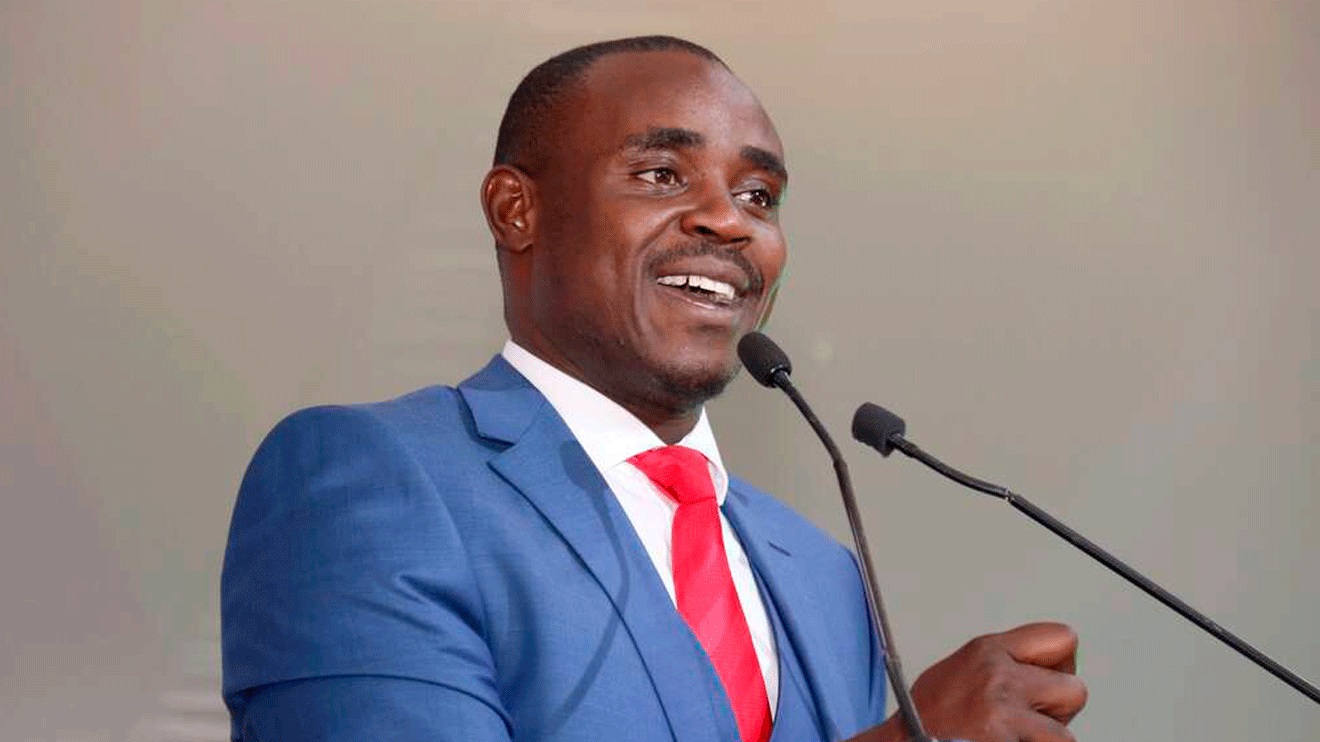
Edwin Clark Biography: Chief Edwin Kiagbodo Clark, born on May 25, 1927, in Kiagbodo, Delta State, Nigeria, is a figure whose contributions to Nigerian society have left an indelible mark on the nation’s political, social, and cultural fabric.
Throughout his long life, Edwin Clark has evolved from a young man with a passion for education to one of Nigeria’s most influential statesmen, renowned for his role in advocating for the rights of the Niger Delta people, his strong presence in Nigerian politics, and his relentless efforts to fight for justice and development.
As of 2025, Edwin Clark’s life story remains a powerful testament to perseverance, leadership, and dedication to improving the lives of others.
His net worth, which has accumulated over decades of service and advocacy, stands as a reflection of his successes, both as a politician and a philanthropist. His profound influence transcends beyond politics into education, infrastructure development, and humanitarian work, making him a celebrated figure in Nigerian history.
This biography will offer an in-depth look at Edwin Clark’s life—his early years, education, career milestones, family, and the enduring legacy he leaves behind. With his advocacy for the Niger Delta and his contributions to national politics, this article will not only provide you with factual information. Still, it will also highlight the key themes that defined his life’s work.
Early Life and Family Background: Humble Beginnings
Edwin Clark was born into a humble family in the small town of Kiagbodo, located in the heart of the Niger Delta region. The town, predominantly inhabited by members of the Ijaw ethnic group, was far from the bustling urban centers. Still, it was rich in culture, tradition, and the values of community living.
His family was not wealthy, but they placed great emphasis on the importance of education and self-improvement, values that Edwin would carry with him throughout his life.
Edwin’s father, a respected local leader, was a great influence on him. His family’s values, coupled with his father’s leadership role in their community, inspired Edwin to embrace service from an early age. Despite the modest means of his family, Edwin’s parents recognized the importance of education and sought to give their children the best opportunities available.
As a child, Clark was attentive, eager to learn, and excelled in his studies. His educational journey began at the local primary school in Kiagbodo, where he laid the foundation for his academic career. He was not just a student of academics but also the world around him, observing the societal issues that plagued his community, especially the neglect of the Niger Delta region in national development. From a young age, Clark displayed a passion for leadership and social justice.
Full Name and Age: Edwin Clark Biography
Edwin Clark’s full name is Chief Edwin Kiagbodo Clark. He was born on May 25, 1927, in Kiagbodo, Delta State, Nigeria, making him 97 years old as of 2025. His long life is a testament to his resilience and commitment to his community. As he enters the later years of his life, his legacy continues to inspire countless individuals across Nigeria.
Educational Background: A Path to Advocacy
Edwin Clark’s academic journey was one marked by dedication and a desire to make a meaningful impact. After completing his early education in Kiagbodo, Clark proceeded to further his studies at the Government Teacher Training College in Abraka. During this time, his intellectual curiosity flourished, and he developed a deep understanding of Nigeria’s diverse cultures and political challenges.
Clark’s passion for education led him to pursue higher education abroad. He went on to study law at the prestigious Holborn College of Law in London. It was at this time that he received formal training as a lawyer, which would serve as the foundation for his later career in public service and advocacy. His academic accomplishments were a reflection of his determination to be part of the solution to Nigeria’s struggles, especially those faced by the marginalized groups in the Niger Delta.
Edwin Clark’s education not only provided him with the skills to become a successful lawyer but also empowered him to advocate for social and political change. Throughout his career, he maintained a strong belief in the transformative power of education and the importance of access to knowledge for all Nigerians, especially those from disadvantaged backgrounds.
Career: A Life of Public Service and Advocacy
Edwin Clark’s career in public service began in 1953 when he was elected as a councilor for Bomadi, a constituency in the Delta region. His entry into politics came at a time when Nigeria was gaining independence from British colonial rule. This was a period of significant political transformation, and Edwin Clark’s decision to join the political fray marked the beginning of a long and illustrious career.
Clark’s early political work involved representing the interests of his community and advocating for the development of the Niger Delta region. In the years that followed, he became an influential member of the National Council of Nigeria and the Cameroons (NCNC). His position in the NCNC allowed him to amplify the voice of the Ijaw people and the broader Niger Delta community at the national level.
From 1966 to 1975, Edwin Clark held the position of Commissioner for Education and Finance in the Midwestern Region, now Delta State. During his tenure, Clark was instrumental in the development of the state’s educational and financial systems, advocating for policies that would improve the lives of ordinary Nigerians. His ability to navigate the complex political landscape of post-colonial Nigeria earned him recognition as a pragmatic and effective leader.
In 1975, Clark was appointed as the Federal Commissioner for Information under General Yakubu Gowon’s military government. This role placed him at the center of Nigeria’s information and communication policies, and he used his position to shape the country’s media landscape. His time as Commissioner for Information was a period of great influence, and he played a crucial role in bridging the communication gap between the government and the people.
Throughout the years, Edwin Clark’s career continued to grow. He served in various leadership positions, including as a member of the National Executive Committee of the National Party of Nigeria (NPN), where he worked to shape the political direction of Nigeria in the Second Republic. However, his most significant work came after the end of the military regime and the return to civilian government in the 1990s.
In the late 1990s, Edwin Clark became a prominent advocate for the Niger Delta region, where he led the charge for resource control and regional development. He championed the rights of the Ijaw people, highlighting the economic disparities that existed between the Niger Delta and other parts of Nigeria. His leadership in establishing the Pan Niger Delta Forum (PANDEF) cemented his status as a key figure in the fight for the rights of the Niger Delta.
Through PANDEF, Clark worked tirelessly to advocate for fiscal federalism, resource control, and a more equitable distribution of Nigeria’s oil wealth. His activism brought global attention to the issues facing the Niger Delta, and he became known as one of the region’s fiercest advocates. In this role, he earned the respect of his peers, both within Nigeria and abroad.
Edwin Clark’s Advocacy for Niger Delta Rights
One of the most defining aspects of Edwin Clark’s career was his advocacy for the Niger Delta region. For decades, the Niger Delta has been one of Nigeria’s most resource-rich regions, yet it has faced severe underdevelopment and neglect. The oil resources in the region, which contribute significantly to Nigeria’s economy, have also caused environmental degradation and social unrest.
Edwin Clark was an unwavering advocate for the people of the Niger Delta. He tirelessly fought for their rights, calling for greater control over the region’s resources and for the government to address the environmental and social issues plaguing the area. His work was not just limited to political lobbying but extended to community engagement, as he sought to empower local people to demand their rights.
Clark’s advocacy for the Niger Delta reached a wider audience through his involvement in PANDEF. The forum played a key role in pushing for constitutional reforms that would give more autonomy to the region and ensure that the people of the Niger Delta had a greater say in the management of their resources. Under his leadership, PANDEF became a formidable force in Nigerian politics, and Clark became a national figurehead for regional development and self-determination.
Personal Life: Family, Spouse, and Children
Edwin Clark’s personal life is as rich as his public life. He was married to his beloved wife, with whom he shared a strong partnership throughout their years together. His family has been a source of strength and support throughout his political and philanthropic endeavors. Clark’s children, who have grown up witnessing their father’s commitment to public service, continue to honor his legacy by engaging in various social and political activities.
Family has always been a central pillar in Edwin Clark’s life. Despite his busy political career, he made time to be with his family, showing them love and care. His children are often involved in the various charitable and educational initiatives that he set in motion, continuing his vision of progress for the Niger Delta and Nigeria.
Net Worth and Financial Legacy
As of 2025, Edwin Clark’s net worth is estimated to be substantial, owing to his successful political career, his involvement in various businesses, and his contributions to education and infrastructure. While the exact figure is not public, it is clear that his wealth is a reflection of his lifelong commitment to service and the success of his many endeavors.
Clark’s financial legacy is not just about wealth but also about the impact he made through his philanthropic work. His charitable foundation, the Edwin Clark Foundation, supports education, healthcare, and community development in Nigeria. Additionally, the establishment of Edwin Clark University in Kiagbodo is a testament to his belief in the power of education as a tool for social transformation.
Philanthropy: A Commitment to Education and Social Development
One of the most significant aspects of Edwin Clark’s life was his commitment to philanthropy. Through his Edwin Clark Foundation, Clark focused on improving the lives of underprivileged Nigerians. His foundation has provided scholarships, built infrastructure, and supported initiatives aimed at reducing poverty and improving access to education in Nigeria.
In 2015, Clark took a monumental step in his philanthropic journey by founding Edwin Clark University in his hometown of Kiagbodo. The university was established to provide quality education to young Nigerians, particularly those from the Niger Delta region. The university is one of the many ways that Edwin Clark continues to give back to his community and ensure that future generations have the opportunity to succeed.
Legacy and Impact: A Man Who Changed Nigeria
Edwin Clark passed away on February 17, 2025, at the age of 97. His death marked the end of an era, but his legacy lives on through his contributions to Nigerian society. His unwavering commitment to the Niger Delta people, his advocacy for social justice, and his role in Nigerian politics have ensured that he will be remembered as one of the nation’s most important figures.
Clark’s impact extends beyond politics into education, healthcare, and community development. His life is a testament to the power of advocacy, service, and resilience in the face of adversity. As Nigeria continues to grapple with the challenges of development and social equity, Edwin Clark’s vision of a fairer, more just society remains a guiding light for future generations.
Conclusion: A Life Well-Lived
Chief Edwin Kiagbodo Clark’s life is one of service, leadership, and profound impact. From his humble beginnings in Kiagbodo to his rise as a national figure, Clark’s career was defined by his dedication to improving the lives of others. His advocacy for the Niger Delta region, his work in education and philanthropy, and his contributions to Nigerian politics have left a lasting legacy that will continue to inspire generations to come.
For those who wish to learn more about this remarkable man and his extraordinary life, it is important to reflect on his journey and the lessons he has imparted. Edwin Clark’s story is one of hope, perseverance, and an unwavering belief in the power of individuals to make a difference.
As Nigeria moves forward, the memory of Chief Edwin Kiagbodo Clark will remain a symbol of leadership, justice, and the relentless pursuit of a better future for all Nigerians.
If you found this article on Edwin Clark’s life, achievements, and impact insightful, be sure to explore more biographical pieces and historical profiles of Nigeria’s most influential figures.




